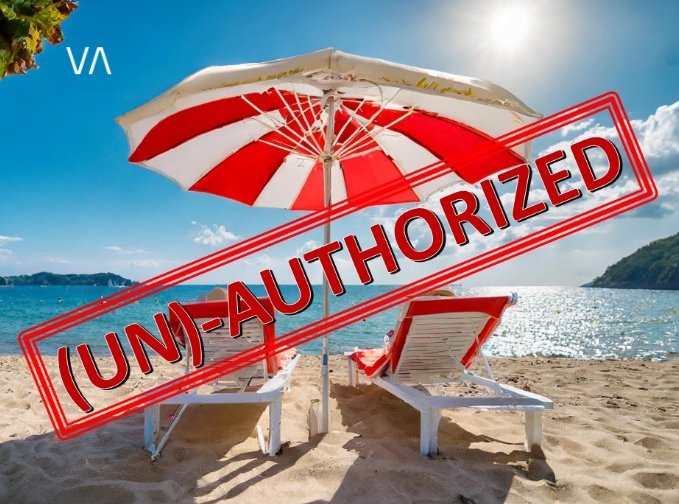Blog
Ministry of the Interior of the Czech Republic: We Will Not Reimburse Anything, the Pandemic Is an Intervention of Force Majeure, Which Was Not Foreseen by the Crisis Act

In the autumn, we applied for damages under a Crisis Act for a number of tour operators, travel agencies and also for one restaurant. We demanded for our clients the lost profit that they suffered as a result of the crisis measures adopted during the first wave of the pandemic. For four months, we did not receive any message from the state, except for the confirmation of receipt of applications. The turning point happened recently when we have received responses to all the requests submitted in a single week of February. The state told clients through the Ministry of the Interior that: "The Czech Republic was not obliged (also not authorized) to provide the applicant with the required performance and compensate him for the alleged damage." This conclusion was not surprising for us and we could say that we expected it with clients. However, the reasoning is so absurd that we have decided to share it with the interested public.
So why won't the state pay damages to businesses under the Crisis Act?
First, we learned that: “the real cause of possible damage are not individual crisis measures, but the global pandemic of covid-19, which also affected the Czech Republic. The pandemic as such must be seen as a force majeure, the effects of which are mitigated by crisis measures.”
Secondly, "it is clear from the circumstances of the adoption of the Crisis Act that at the time of the adoption of the Act, the legislator did not anticipate, nor could it have anticipated, an epidemic of such magnitude as in the Czech Republic in 2020.”
Thirdly, "... it remains to conclude that the legislator aimed only at compensating for material damage that arose during the implementation of crisis measures aimed at specific entities, ie the implementation of individual crisis measures." Such, according to the Ministry of the Interior, are not crisis measures adopted during the state of emergency, because they are measures "of its kind."
Finally, we learned that the “state considers the system of government-approved individual aid instruments to be “the most important element in compensating for material damage, not only in the business sector. On the other hand, the provisions of Section 36 of the Crisis Act cannot be used for this purpose, as this is a special and narrowly focused regulation of the liability relationship.”
In other words, the state told us that whether you are a tour operator or an travel agency, whether you are dealing with incoming or outgoing, children or seniors, whether you are a restaurant on the Old Town Square or at the end of the world, it doesn't matter. No one gets anything because the crisis law did not even presumed force majeure in the form of the coronavirus epidemic. One could, of course, ask himself what the state thought about when creating the Crisis Act.
Clients and we are now putting together a plan for the next move. There is, of course, a legal instrument in the form of the lawsuit, which we have all, though reluctantly, been counting on from the beginning. Perhaps none of our clients is satisfied with the compensation in the form of subsidy programs or "government-approved individual assistance instruments". After all, many clients did not reach for these tools at all.
If you find yourself in a similar situation, do not hesitate to contact us to coordinate the next step.
More articles:

Unauthorised business in tourism: what is considered as such?
The Association of Czech Travel Agencies ("ACK") has created a new educational guide for entrepreneurs entitled "(Un)authorised Business", which briefly explains the most pressing issues in the field of tourism. This brochure contains eve...
Stewarts
'No one has done as much for me as you,' Eva said.
Stewarts
"A visit to her daughter in London turned Eva's life upside down when she says she stepped into a crossing on a green light but was hit by a car. Despite her remarkable bravery, she faced a long treatment due to fractures in her pelvis, and the associated limitations and pain are likely to persist for the rest of her life. Regular headaches and impaired concentration compound her challenges.
Eva contacted us through an organization temporarily helping her manage her difficult living situation. At that time, she was destitute, relying only on subsistence payments. We were able to assist her because we specialize in personal injury and have contacts with proven colleagues abroad.
We worked with Stewarts, a UK law firm, on this case. Attorneys Klára Dvořáková and Rebecca Huxford helped Eva with the documentation in her case, explaining her options and the differences between the Czech and British systems of healthcare and social benefits reimbursement. Within a few months, thanks to the professional cooperation between the two offices, an offer of compensation from the insurance company of approximately CZK seven million was achieved. The client accepted this settlement because she did not want to deal with courts in the United Kingdom.
Subsequently, we assisted the client with related tax issues and contacted Auditone, a tax consultancy firm, which arranged for the filing of a tax return. Compensation for lost income is taxable, unlike most personal injury compensation.
'No one has done as much for me as you,' Eva said.
The fact that we were able to help Eva gives our work meaning and brings us great joy. We are very happy that, thanks to our many years of active involvement in the international professional organization PEOPIL, we can cooperate on such cases."
Livingstone, Tour Operator
Thank you again for your valuable advice. I breathe better when I know who to turn to.
Livingstone, Tour Operator
"Thank you again for your valuable advice. I breathe better when I know who to turn to."
Anders Thorsen Advokatanpartsselskab
It has been an absolute pleasure to work with you.
Anders Thorsen Advokatanpartsselskab
"It has been an absolute pleasure to work with you and your colleagues. Your advice and way of handling the matter and our communication has been of the highest quality and we are very happy with the outcome.
If any of my clients need assistance in matters in the Czech Republic in the future, I know who to recommend."




